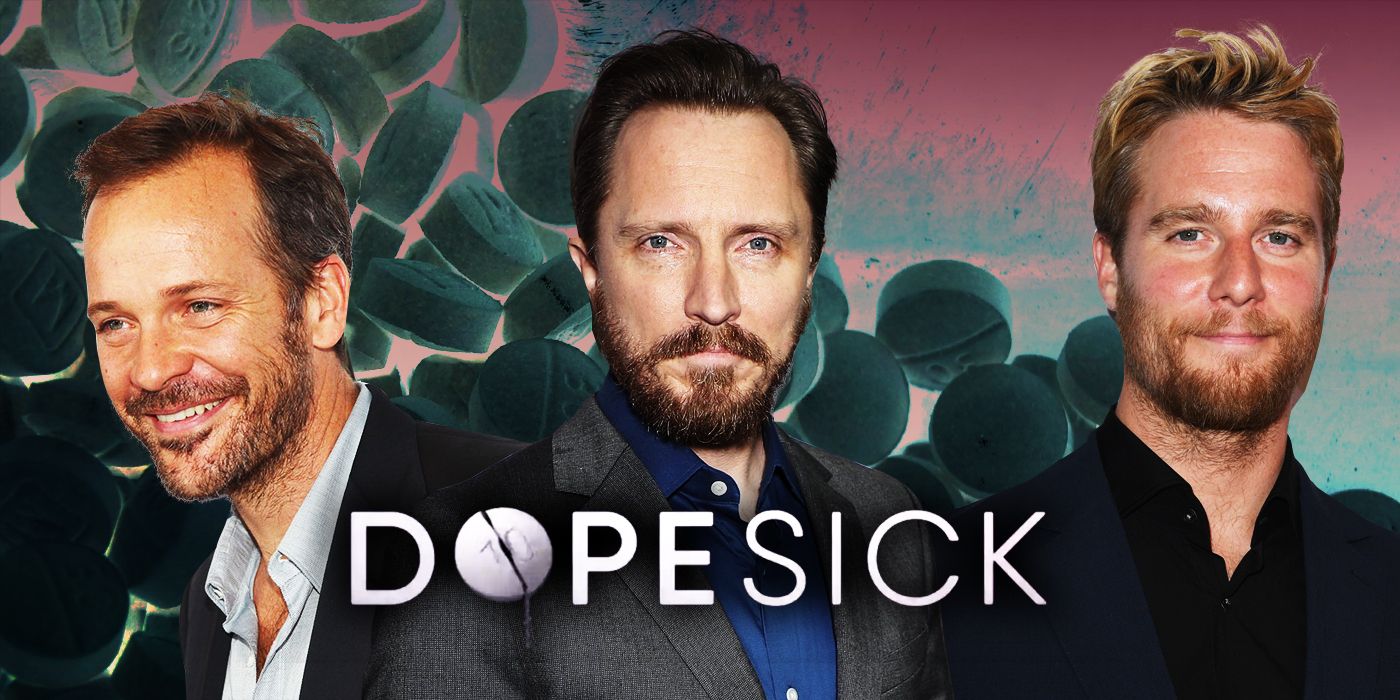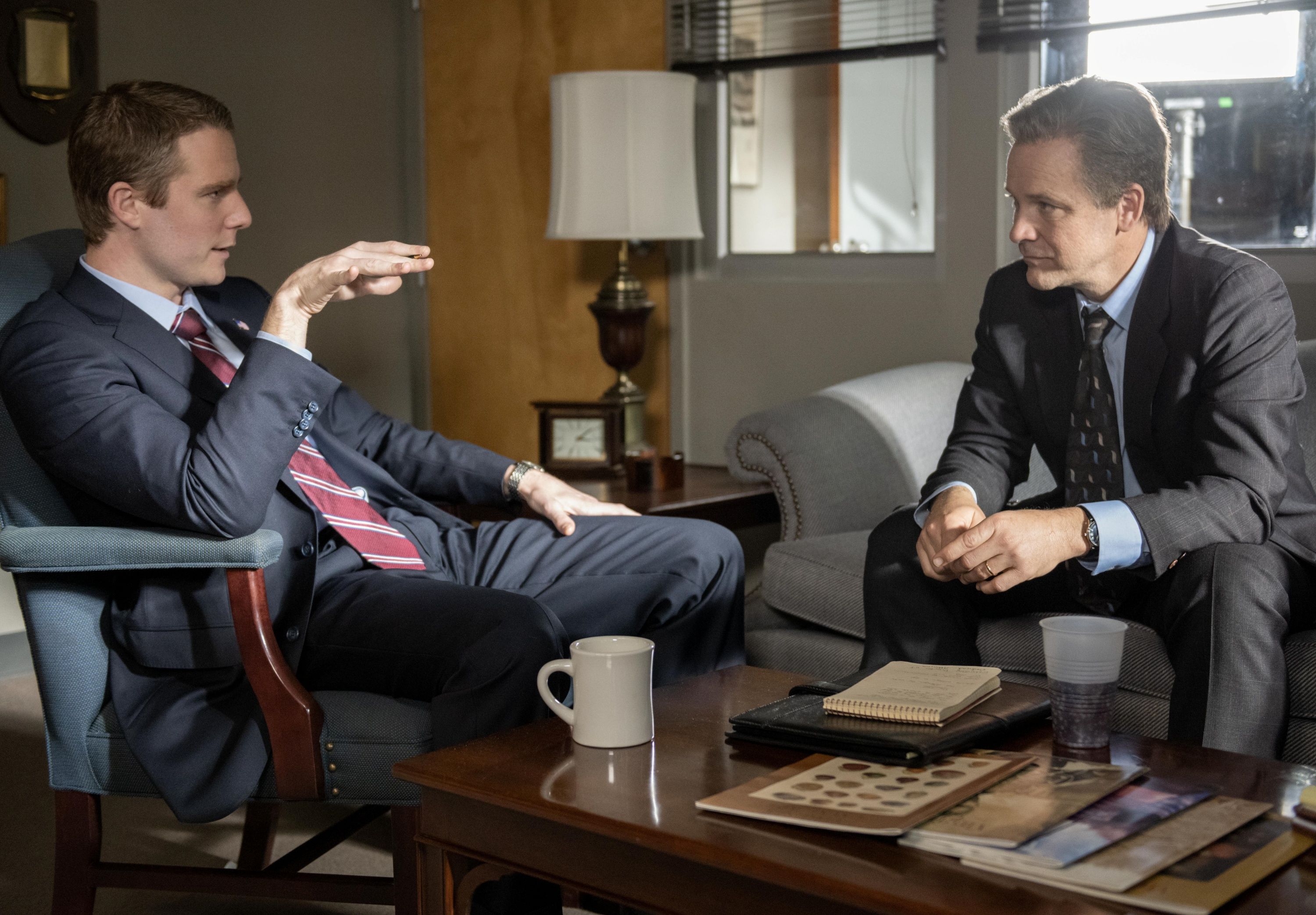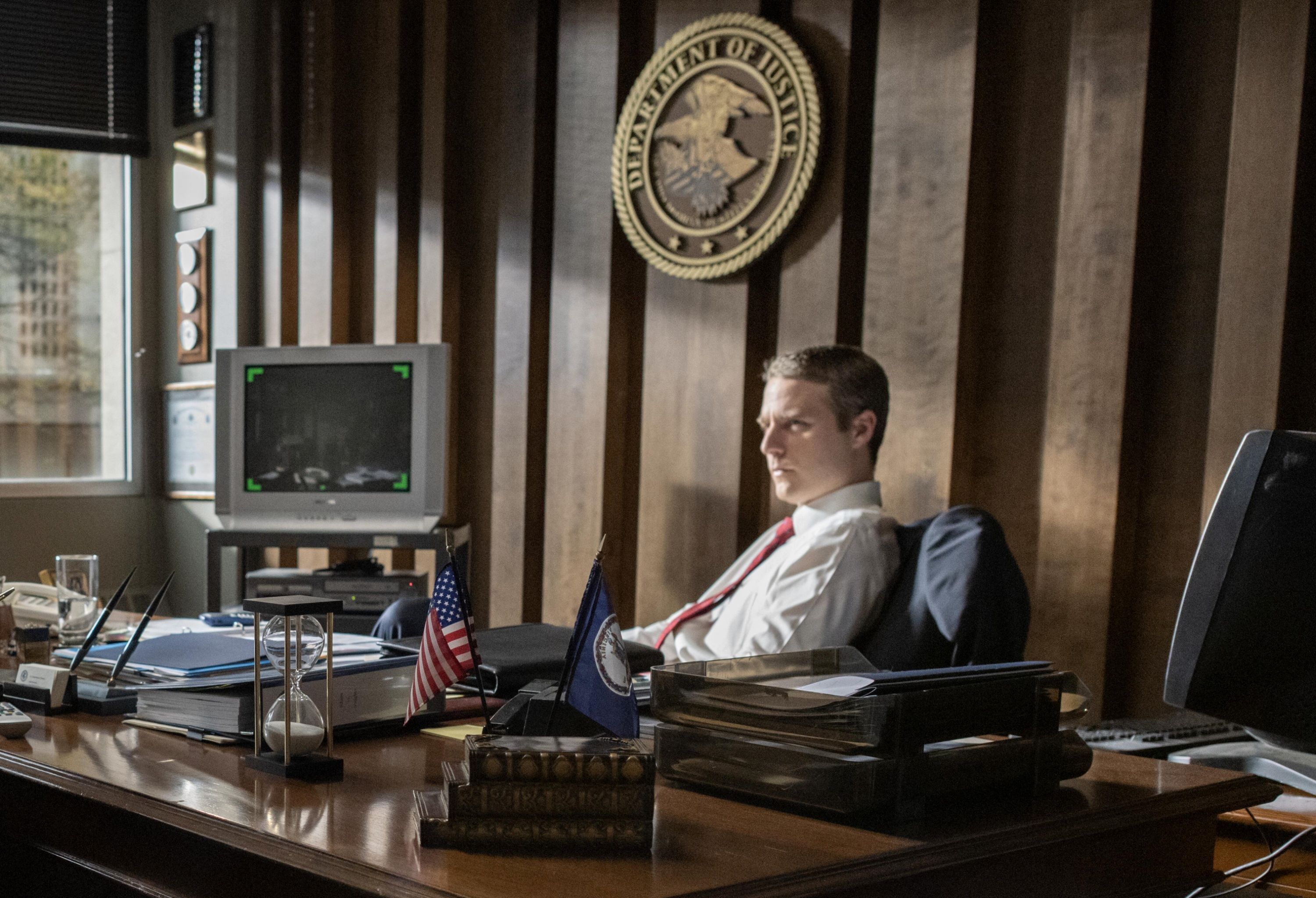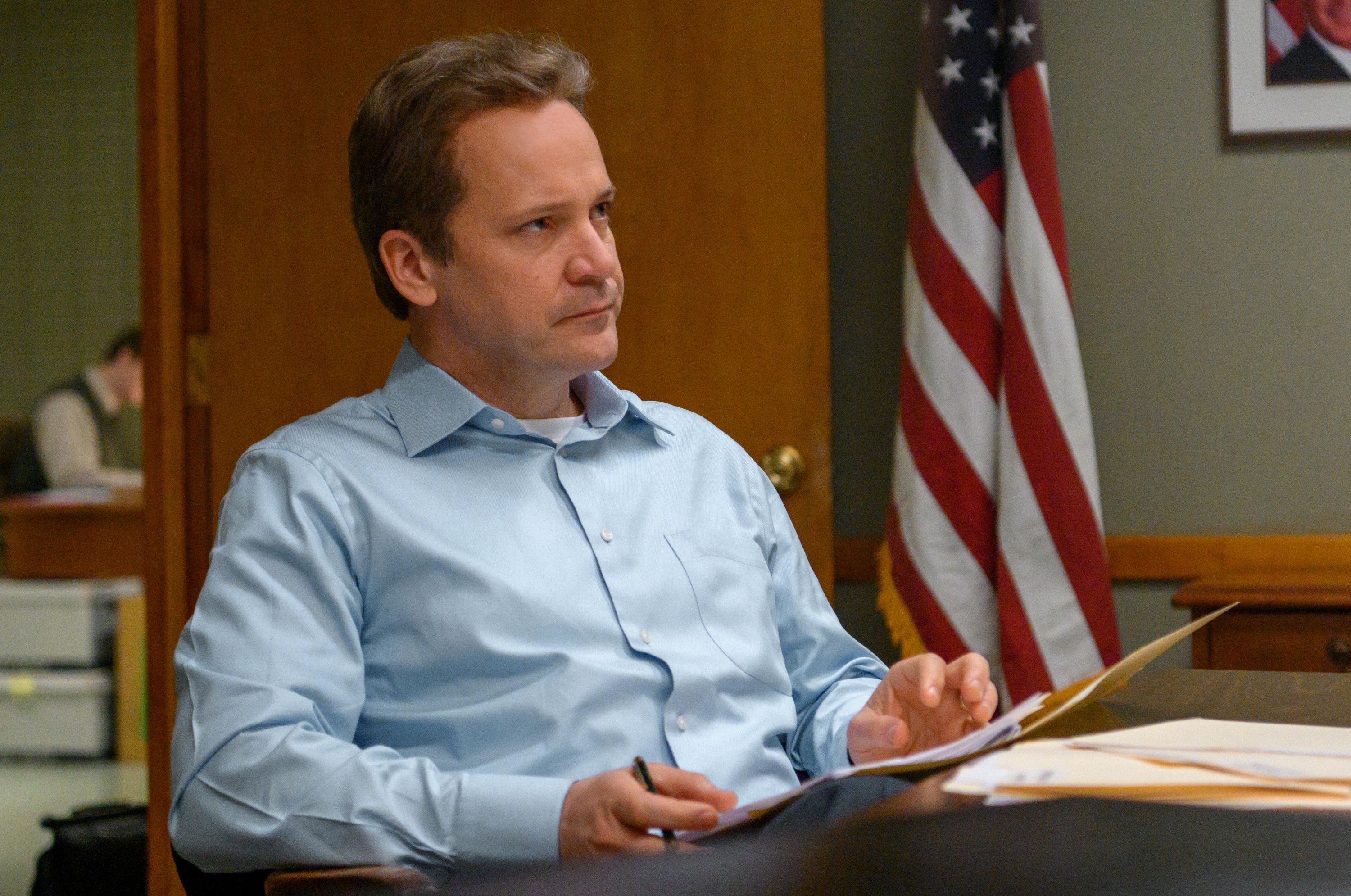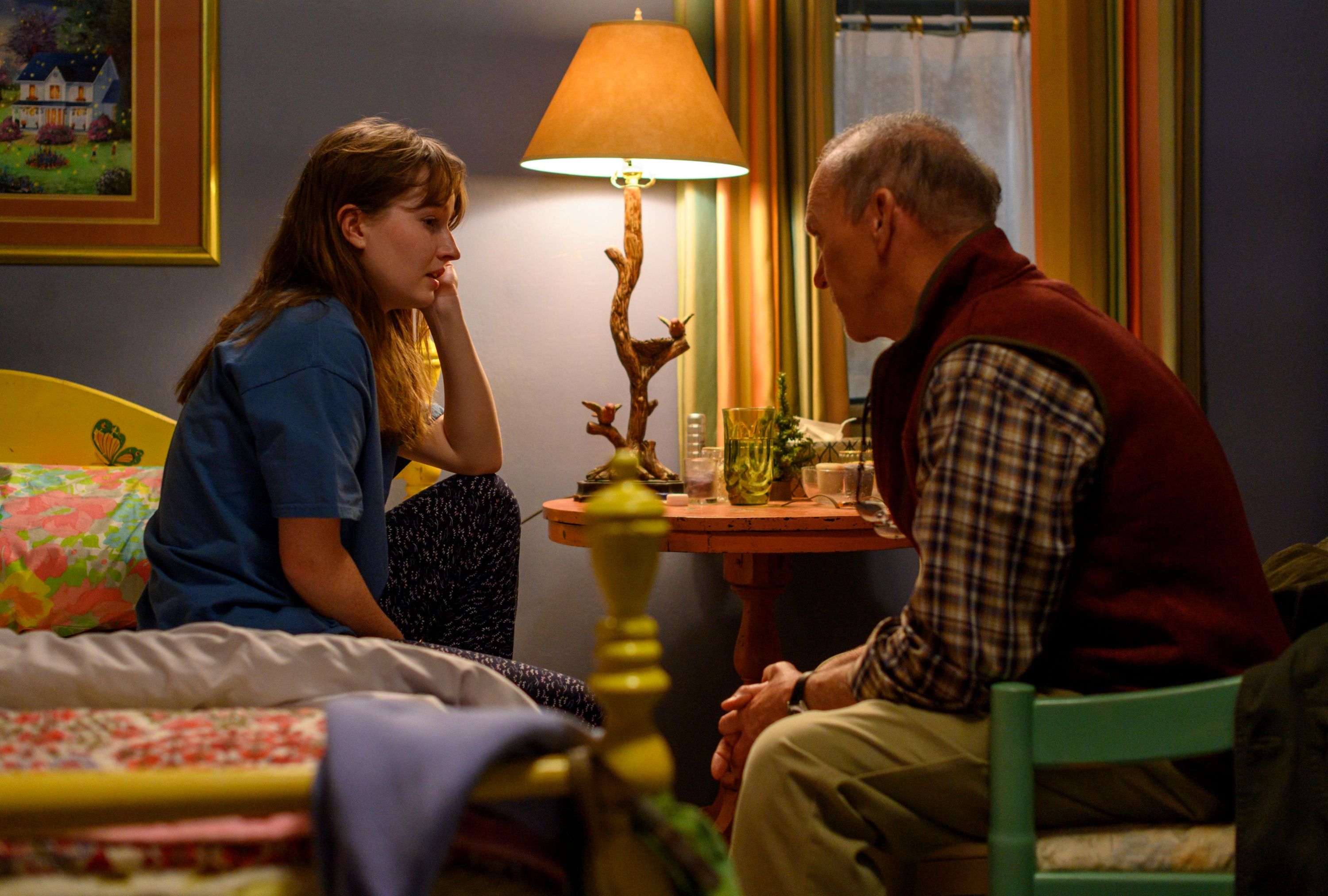From creator Danny Strong and inspired by the best-selling book of the same name, the limited Hulu series Dopesick delves into how Purdue Pharma created the worst drug epidemic in American history when they pushed their opioid while lying about how addictive it truly is. Threading stories about Big Pharma, a small mining community, and the DEA, the villains become clear while the ordinary people try to struggle through each day just to make it to the next.
During this interview with Collider, co-stars Peter Sarsgaard (who plays Assistant U.S. Attorney Rick Mountcastle), John Hoogenakker (who plays Assistant U.S. Attorney Randy Ramseyer) and Jake McDorman (who plays U.S. Attorney John Brownlee) talked about what appealed to them about Strong’s scripts, the journey their characters take, whether they were surprised by any aspects of this story, and how anger and a sense of helplessness are the right responses to have to this series.
Collider: I appreciate you talking to me about this. This is obviously not easy material. This story is heartbreaking, it’s tragic, and it made me want to scream multiple times watching it. What was it about this that made you want to be a part of telling this story? Was it the way that the story unfolds in the script that interested you? Was it your particular character?
PETER SARSGAARD: Danny is a very talented, very persuasive guy. This is a very complicated story to tell, and he wrote every word of it. It’s all his. When I knew that was gonna be the way, [I was interested]. He was able to do that partly because, with COVID, he had more time than normal to write it. This is one of the first shows I’ve ever done where basically the whole thing was written before we started, or he was just finishing, as we were starting. It was nice to have him really available on set, not just stressing out, writing the thing.
JAKE McDORMAN: It’s not necessary, but it’s a bonus and it makes it more attractive within the instance of these three characters and the people that we were playing in real life, being on the right side of it. There was a way to channel the frustration with the situation a little bit, by going to work and actually being given Danny’s dialogue, which is incredibly fun to perform and put on its feet, aiming it at the appropriate target and frustration throughout the series. Michael Stuhlbarg does an incredible job portraying Richard Sackler. It’s not a black and white villain, but at the same time, it would have been a different experience, if I was playing somebody that was maybe on the other side, or on the pharmaceutical side of this. Along with what Peter said about Danny and how adept he is at writing and the runway he had with the pandemic to do it, for me, it was satisfying to get in there, in this issue and this topic, and feel like you’re fighting the right side.
John, your character also takes a very personal journey in this as well. What was that like for you?
JOHN HOOGENAKKER: He does. Randy is one of the Assistant U.S. Attorneys up in Abingdon, Virginia that brings suit against Purdue in the beginning. Rick approached John Brownlee with this idea, and Brownlee basically kept sending them back to the drawing board, so that they could build a stronger and stronger case. Danny had looked at me for a couple of different roles before they offered me Randy, so I was able to spend a lot of time in the various rooms of this world, before coming to Randy. What I loved about it was the lengths that they went to, to humanize all of the people touched by the opioid crisis.
I’m sitting here thinking of Michael Pollan’s book, The Botany of Desire, when he goes through these four different plants and he talks about how man uses the apple because of the desire for sweetness, the potato for sustenance, the tulip for beauty, and marijuana for intoxication. And I think about opium as the main unnamed character in this journey. It’s the thing that’s pushing all of the action forward. This drug company wants to get these opioids to market. They use the FDA to make that happen. There’s a breakdown that happens that allows this thing to happen. And then, they continue pushing it to unsuspecting Americans who trust the FDA and trust the doctors because the doctors trust the FDA, and opium wins the day. It’s a fascinating story, and it is still going on, not just in this country, but all over the world.
It was so interesting to watch because I’m one of those people that is highly paranoid about medications. Addiction runs through multiple generations of my family, so I had abdominal surgery and took ibuprofen and refused to take anything else. Did anything surprise you about how easily all of this seemed to happen, or are you cynical enough that it doesn’t surprise you when you see how all of these pieces came together?
HOOGENAKKER: It seems, in retrospect, that it did happen with a certain amount of ease, but in reality, Purdue Pharma spent millions and millions and millions of dollars to create this drug and to create the impression that it was not dangerous. It took them a long time to hoodwink the FDA and to make sure that you and I, if we suffered a knee injury, might be prescribed OxyContin, and that if we experienced pain in a 12-hour period, that they would then double that dose and sell us more and more of that drug. This is all the result of hours and hours and millions and millions of dollars.
Peter, what was your reaction to all of that? Did you look at this and say, “I can’t believe this happened,” or is it easy to see how those things could line up, especially when you have people who are trusting doctors that didn’t know the truth?
SARSGAARD: I just feel like we’ve lost touch with what that relationship is, between the healers in our society and the patients in our society. The fact that drugs are advertised to the public, when you turn on the television, everybody laughs because it’s ridiculous. It’s like, “Do y you experience this, this and this.? You might wanna try some of this shit. It might do all of these things to you, including death or seizures.” How has it become our responsibility to do that? Traditionally, in our culture, a long, long time ago, you would go to the person who knew about all of this. They were a trusted person. They thought about who you were, when they gave you something, and it really had everything to do with you. It was a very personal thing. It was your relationship to pain, not everyone’s relationship to pain.
I’m not surprised. Opioids are the oldest drug there is. With Valium, the Sacklers also marketed in a way that it was just a nice little thing that could take the edge off, like mommy’s little helper. That idea that we market hard drugs as being benign is really bizarre when applied to something as intense as an opiate. So, it’s not surprising. The most surprising thing for me in this story is the ways in which they were aided and abetted by the government, protected by the government, and the way that lobbying really does have a negative effect on so many aspects of our culture. You have somebody who works for the government become a lobbyist for the very thing that they were the gatekeeper for, and that happened so many times with OxyContin.
Jake, you mentioned playing someone who is on the right side of things in the story, but how hard is it, as an actor, to become invested in a story that you have a hand in telling, but there is no resolution at the end. These families and these lives are still destroyed.
McDORMAN: Right. Somebody asked, what does it feel like to be on a show that is coming out when this is all still in the conversation and ongoing and capturing that zeitgeist, and it’s sad. You wish that you could wrap this story up in a bow and say, “This is what happened, and that’s over. We learned from it and we moved on, and there are these roadblocks to prevent it ever from happening like this again.” But it’s not. To echo what Peter said about the government’s involvement, that was the most cynical thing. I wasn’t surprised, but just to see these three guys and how much trouble, over how many years, they had to go through to just try to make this case airtight, so that it couldn’t, for any peripheral or superficial reason, be knocked out of whack. And then, even still, they had so much pushback. It was stressful.
When you said that your reaction to watching it was just anger, I think that’s the right response – anger and helplessness. By playing Brownlee and getting to follow their story arc on this, even though it doesn’t stick the landing of everything being okay, there was a catharsis in being able to get some of that anger out. This is ongoing. The Sacklers are in the news right now. The fact that you have so much money in this country and the power of those incentives are so great, there is no world where they’re gonna see any jail time, or anything like that. So, yeah, it’s frustrating, but in a cathartic way, as an artist portraying it.
You just have to hope that it gives more compassion to the people that shouldn’t be stigmatized for it.
SARSGAARD: Absolutely.
Dopesick is available to stream at Hulu.

